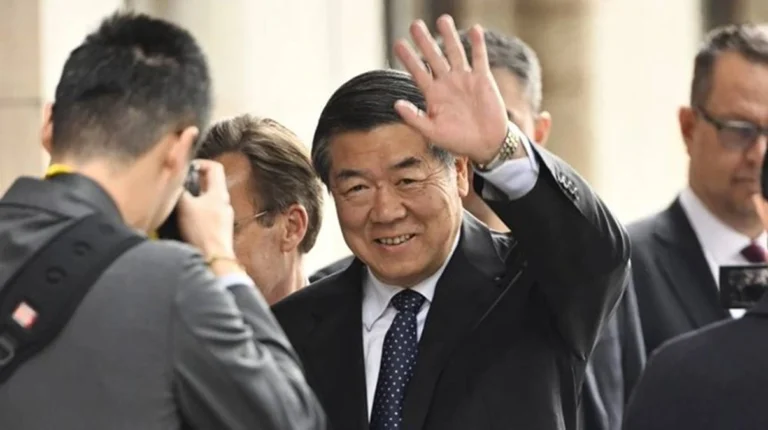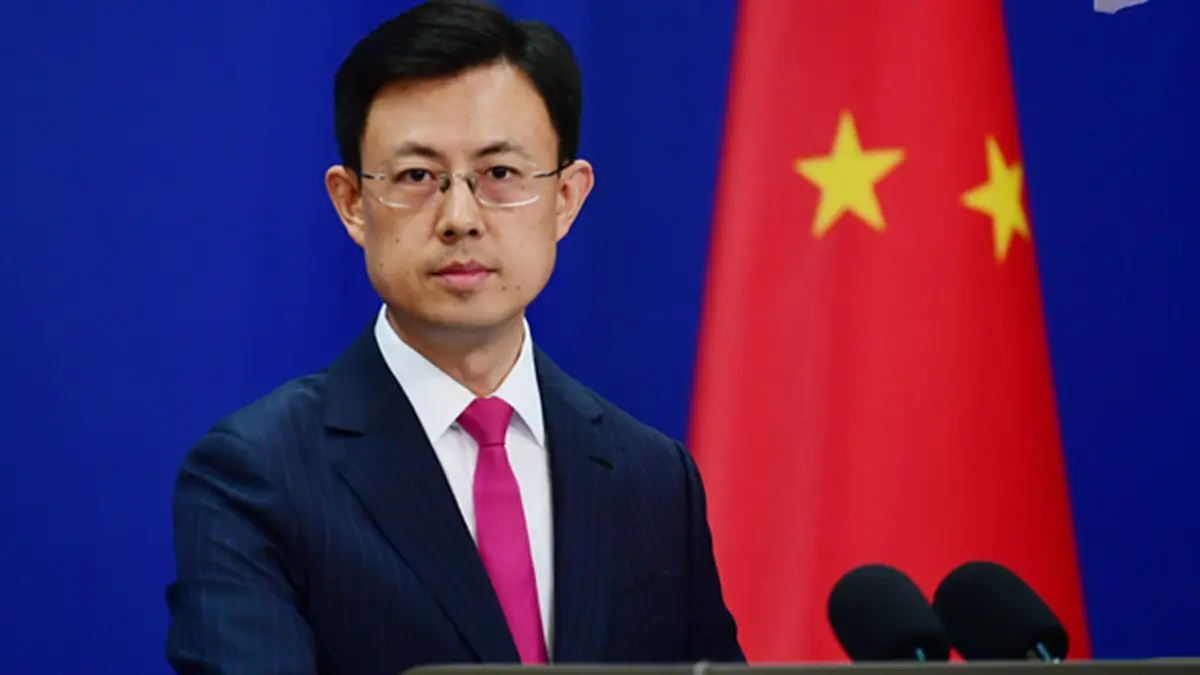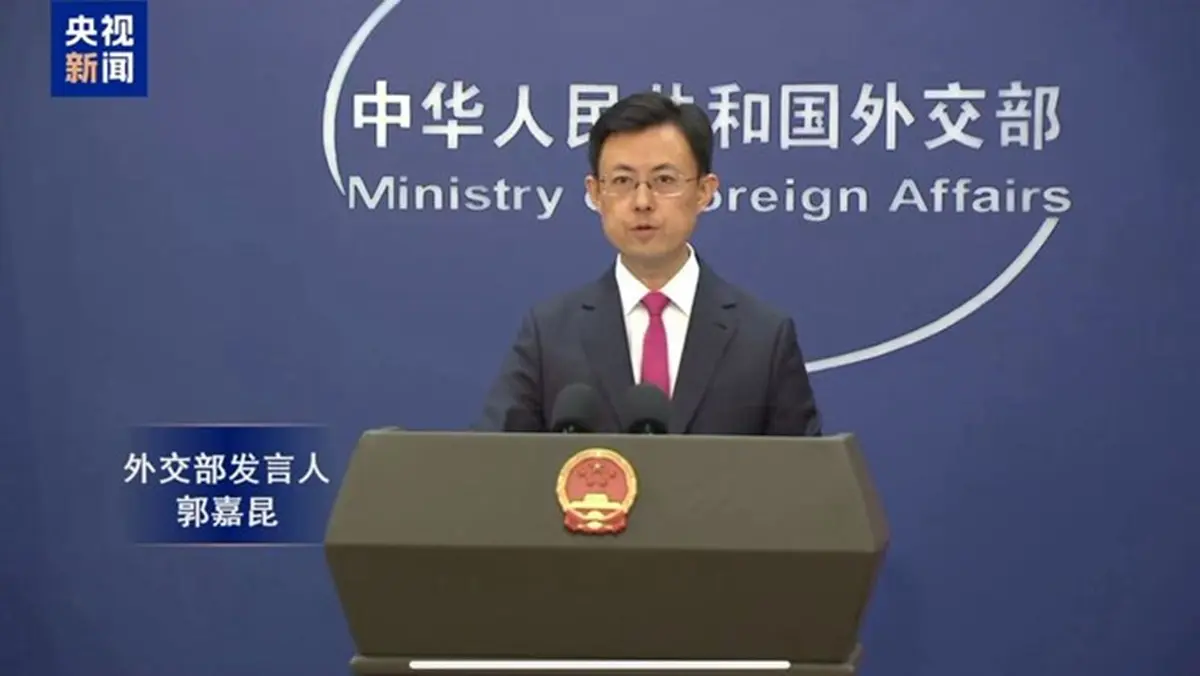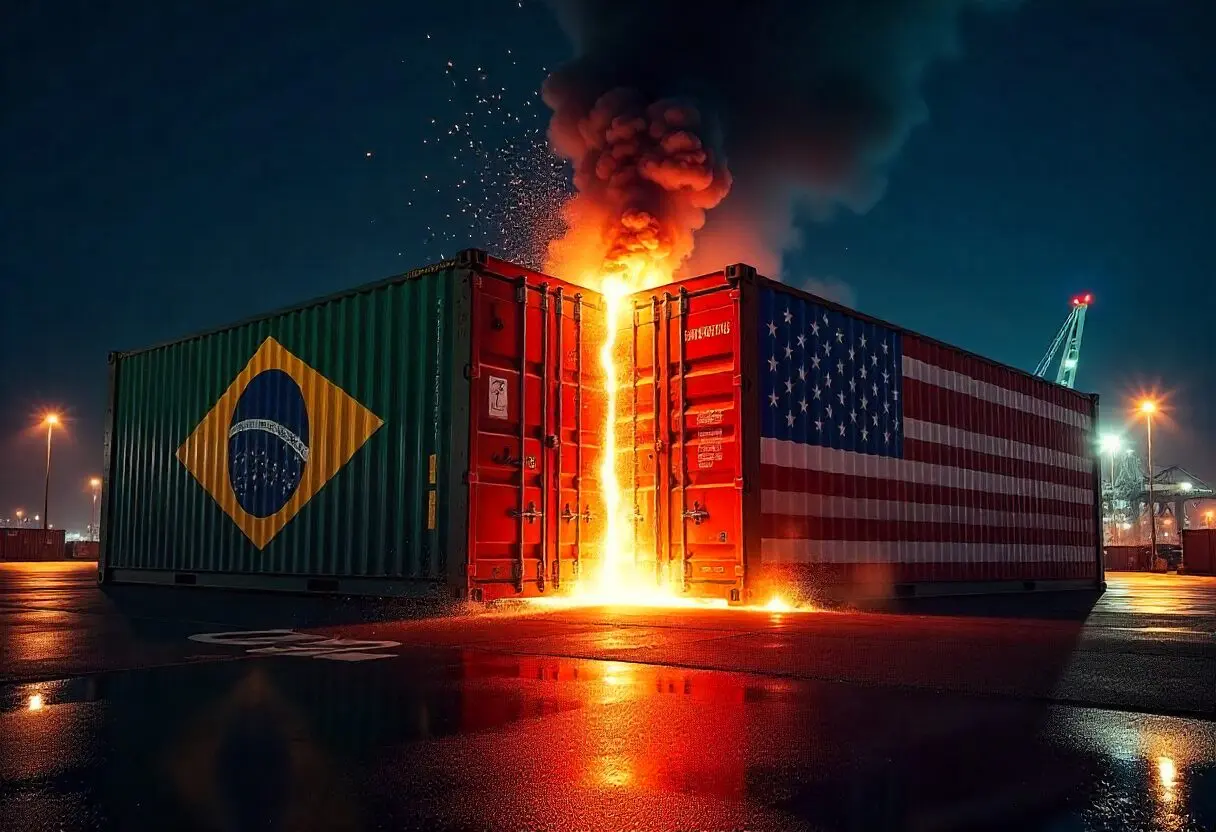China and the U.S. To Push for Continuation of Tariff Truce

Chinese Vice Premier He Lifeng (C), July 29, 2025. X/ @kulchandphombo
July 29, 2025 Hour: 2:08 pm
The Stockholm meeting followed previous encounters in Geneva and London.
On Tuesday, U.S. and Chinese representatives finished the second day of tariff negotiations in Stockholm, following an initial session the day before that lasted more than five hours, with no details disclosed.
RELATED:
Portugal Industries Face Heavy Blow From Incoming U.S. Tariffs
The two delegations once again arrived at Rosenbad, the seat of the Swedish government. Among those attending the meeting were U.S. Treasury Secretary Scott Bessent and Chinese Vice Premier He Lifeng.
Swedish Prime Minister Ulf Kristersson had met separately on Monday with Bessent and U.S. Ambassador Jamieson Greer, as well as with He Lifeng and the rest of the Chinese delegation.
“Sweden proudly welcomes the representatives of the U.S. and China for their important bilateral trade negotiations. We hope for a positive development for global trade and the world economy,” Kristersson said, noting that his country “strongly supports global rules-based trade and wishes both parties great success in their negotiations.”
The meeting in Stockholm follows previous encounters in Geneva and London, as well as a phone call between Presidents Donald Trump and Xi Jinping on June 5.
“According to the consensus between China and the United States, both sides will continue to push for a continuous extension of the pause,” said Chinese negotiator Li Chenggang after two days of trade talks.
On Monday, the Financial Times reported that the United States had paused restrictions on technology exports to China to avoid disrupting trade negotiations and to support Trump’s efforts to secure a meeting with Xi later this year. The U.S. president, however, denied the report.
“That is not correct—I’m not looking for anything! I may go to China, but only if invited by President Xi, which has already happened. Otherwise, no interest!” Trump wrote.
“We’re very close to a deal with China. In fact, we already have a sort of deal with China, but we’ll see how it develops,” he said on Sunday from Scotland.
Bessent pointed to the possibility of extending the current 90-day tariff truce, which covers the 145% tariffs the U.S. imposed on Chinese goods and the 125% tariffs Beijing imposed on U.S. products. The U.S. also reduced tariffs on Chinese imports to 30%, while China lowered tariffs on U.S. goods to 10%. The truce is set to expire on August 12.
The June meeting in London also eased export controls—on U.S. exports of chips and aviation engines, and on Chinese exports of rare earth elements. So far, however, Beijing has not commented on the possibility of extending the truce.
The U.S. has expressed interest in raising sensitive issues for the Asian giant, including greater market access, China’s industrial overcapacity in key sectors like electric vehicles, steel and solar panels, and Beijing’s purchases of Russian and Iranian crude oil.
China has indicated that it will not accept ultimatums and that the atmosphere of understanding would be damaged by any attempt to condition the negotiations on unilateral measures—such as extraterritorial sanctions or technology restrictions.
teleSUR/ JF
Source: EFE






